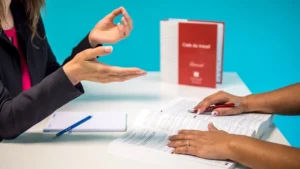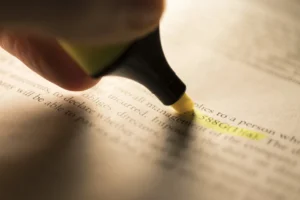KPA Lawyers – August 17, 2020
By Jason Sinukoff jason@kpalawyers.ca

Picture Jane Doe. Jane is a woman of modest means. She has worked hard for her money, has paid off the mortgage on her suburban home and has managed to save some money in her savings account.
Jane has always put family first and, as such, wants to leave everything she owns to her family when she dies. However, Jane is not sure that her family will spend her money responsibly, since her husband John is a spendthrift that spends money faster than he can make it and her son Adam likes to gamble.
What options are available to Jane to ensure that her family spends her hard-earned money sensibly?
If you are like Jane, you may want to take advantage of what lawyers call a testamentary trust. Essentially, a trust is a legal relationship created by an individual, in which the individual directs one or more persons to hold property for the benefit of others. This should all be set out in a document in writing, otherwise known as a trust instrument, which sets out the terms of the trust and outlines the duties and powers of the trustee (defined below).
The individual creating the trust is legally known as the “settlorâ€. The person the settlor directs to hold the property is legally known as the “trustee†and the person the settlor directs the trustee to hold the property for is legally known as the “beneficiaryâ€. The trustee has a duty to act honestly and in good faith and to use their powers properly and in the manner set out by the trust instrument. A trustee may not favour one beneficiary over another and must treat all beneficiaries equally. It is important to note that a settlor can direct his or her property to be held by multiple trustees for the benefit of multiple beneficiaries.
A trust instrument can give a trustee many powers to carry out his or her duties. Powers typically given to a trustee include discretionary powers in which the trustee is given discretion as to when and what trust funds are given to beneficiaries and the power to invest the trust funds.
In the example above, Jane would be the settlor should she decide to create a trust. Jane would appoint an individual as the trustee to hold her property for her intended beneficiaries, John and Adam.
“So, what types of trusts are there?â€
There are two main types of trusts: inter-vivos trusts and testamentary trusts. The two mainly differ with respect to when the trust takes place. An inter-vivos trust is one which is created by the settlor during his or her lifetime. It is important to note that a settlor cannot simply recall the trust property once a trust is created. Generally, a settlor would only be able to do this if it was specifically authorized in the trust instrument.
The more common type of trust is a testamentary trust, which is created by a settlor in his or her Will and only takes effect upon the settlor’s death. This is the more common of the two and is widely utilized in the context of estate planning.
“Can you give me some reasons why I may want a trust?â€
Trusts can be created for a countless amount of purposes. In the example above, Jane may look to create a testamentary trust to protect a spendthrift beneficiary and a beneficiary with a gambling issue from irresponsibly spending their inheritance upon Jane’s death. Other reasons one may wish to create a trust may include:
· To gift money to charity via a charitable remainder trust;
· For business succession planning purposes;
· To provide support for disabled children or elderly parents who are unable to manage their own financial affairs;
· To set up an education fund for children or grandchildren; or
· To hold a cottage property in trust upon death so the deceased’s family may still enjoy it while avoiding potentially substantial litigation.
“That all sounds good, but what is needed to create a valid trust?â€
Generally speaking, a valid trust instrument requires three things:
1) Capacity
2) Certainty
3) Constitution
Let us examine what each of these means in further detail:
Capacity
A trust instrument will not be recognized as valid if the settlor was incapable of creating the trust at the outset. Potential incapacities include if the settlor was a minor, mentally incompetent, or an undischarged bankrupt when the trust instrument was created.
Certainty
A trust instrument must be certain about three things. First, a trust will only be valid if it can be shown that the settlor subjectively intended to create a trust in the first place, rather than simply a wish for the intended trustee to carry out. Lawyers call this the certainty of intention. For example, a settlor’s intentions will likely be deemed certain if the trust instruments states “I give $5,000 to Rebecca to hold in trust for Shaneâ€. Conversely, the settlor may lack a certainty of intention if the trust instrument states, “I wish for Rebecca to give $5,000 to Shaneâ€.
Second, a trust instrument must clearly indicate which property or assets are the subject of the trust. Lawyers call this the certainty of subject matter. To be certain of the subject matter, the property referred to in the trust instrument must be specified (i.e “my stamp collection†or “the sum of $5,000â€) or must be identifiable through a known formula (i.e. “the residue of my estateâ€).
Finally, a valid trust instrument must identify the intended beneficiaries, as trustees must determine who the trust is for. Lawyers call this the certainty of objects.
Constitution
A trust is constituted when the trust property is transferred from the settlor to the trustee. At this point, the trustee becomes the legal owner of the property and holds it in trust for the beneficiary. It is important to note that the settlor can name himself as trustee, in which case constitution is easily accomplished.
Whether it be to protect your beneficiaries from creditors or to exercise more control over how and when your assets are to be inherited, the testamentary trust is a valuable tool in any estate planner’s toolbox.
For a free Wills and Estates Consultation, click here.



